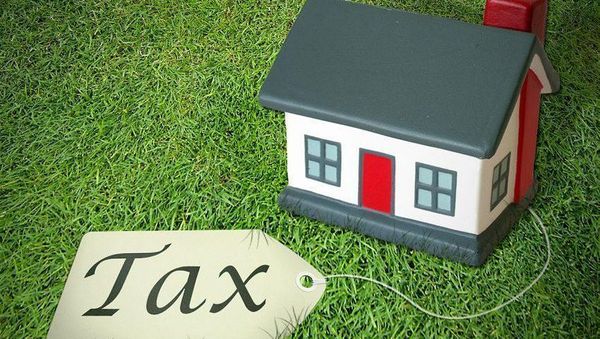Living as a US expat is an adventure in itself, but when you add the complexity of navigating the world of capital gains tax to the mix, it can become quite the expedition. In this comprehensive guide, we will embark on a journey through the tax landscapes for US expats owning or selling properties in the UK, Canada, and Australia. To make it engaging, we'll sprinkle in some humor, because, let's be honest, taxes can be as entertaining as watching paint dry.
Understanding Capital Gains Tax
Before we set off on our global adventure, let's ensure we have a firm grasp of what capital gains tax entails. Capital gains tax is the levy on the profit earned when selling an asset, such as a property. For US expats, this can become a web of bureaucracy when dealing with properties outside the United States.
The British Experience: Owning Property in the UK
If you're an American residing in the UK and own property, you may encounter capital gains tax when you decide to sell. However, take heart, there's some good news - the UK and the US have a tax treaty that can work in your favor, helping to reduce your tax burden. Just make sure to file the right paperwork and keep an eye on any exemptions.
Now, let's delve a bit deeper into the UK's capital gains tax landscape. In the UK, the tax rates vary depending on your total income, which includes the gain from the property sale. For basic rate taxpayers, the tax rate is 18%, and for higher rate or additional rate taxpayers, it's 28%. However, there's also an annual tax-free allowance called the "Annual Exempt Amount," which currently stands at £12,300 (for the tax year 2021/22). If your gains fall below this threshold, you might not owe any tax at all.
One important aspect to understand is Principal Private Residence Relief. If you've lived in the property you're selling, you might be entitled to a relief that can significantly reduce your tax liability. This relief can also apply if you've let a part of your property or used it for business purposes.
Poutine and Property: The Canadian Connection
Canada is known for its beautiful landscapes and friendly neighbors, but it's also notorious for its intricate tax regulations. If you're a US expat selling property in Canada, you might face the taxman. The good news is, there are tax credits and deductions available that can soften the blow. Just remember to keep all those receipts and documentation in order.
In Canada, the capital gains tax works a bit differently than in the UK. Here, only 50% of your capital gains are taxable. So, if you make a profit of $100,000, only $50,000 is subject to tax. The tax rate also depends on your overall income, but it generally falls within the range of 15% to 23%.
An essential point to consider is the concept of the "Principal Residence Exemption." In Canada, if the property you're selling was your principal residence for all the years you owned it, you may be exempt from capital gains tax. However, if you've used a portion of your property for business or rental purposes, you might not qualify for the full exemption.
Down Under Dilemmas: Australia's Take
Australia is a popular destination for US expats, and it's no surprise that many own property there. When it comes to selling property Down Under, the capital gains tax rules can be a bit bewildering. Make sure you understand the tax implications and exemptions that apply to your unique situation. And always seek professional advice if you're in doubt.
In Australia, the capital gains tax is levied at your marginal tax rate, but there's a discount for assets held for more than 12 months. If you're a non-resident for tax purposes, you won't be able to benefit from this discount, and your capital gains tax rate will typically be 32.5%.
One important consideration in Australia is the "Main Residence Exemption." If you've lived in the property you're selling as your main residence, you may be eligible for a full capital gains tax exemption. However, if you've used the property for income-producing purposes, such as renting it out, part of your gain may still be taxable.
Dealing with Double Taxation
One concern that might be on your mind is double taxation – the possibility of paying tax on your property in both the foreign country and the United States. The good news is that the US has tax treaties with the UK, Canada, and Australia to help prevent or mitigate double taxation. It's important to understand these treaties and utilize them to your advantage.
Best Practices for US Expats
As a US expat, you're already navigating a complex world of finances, visas, and cultural differences. When it comes to property and capital gains tax, here are some best practices:
Stay Informed: Keep up to date with the tax laws and regulations in your host country. Tax rules can change, and you don't want any surprises.
Seek Professional Advice: Tax professionals who specialize in international taxation can be invaluable. They'll help you make sense of the tax laws and ensure you're not overpaying.
Keep Impeccable Records: Documentation is key. Keep records of all property-related transactions, expenses, and paperwork. This will save you headaches when tax time comes around.
Use Tax Treaties to Your Advantage: Familiarize yourself with the tax treaties between the US and your host country. These can provide significant benefits.
Plan Your Tax Strategy: Timing can be crucial when it comes to capital gains tax. Consider the timing of your property sale and consult a tax expert to optimize your tax strategy.
Consider Professional Help for Complex Cases: If your situation involves multiple properties, complex ownership structures, or substantial gains, it's wise to consult a tax professional with expertise in international tax planning.
Capital gains tax may appear challenging, particularly for US expats managing overseas property. However, with the right information, professional guidance, and a touch of humor, you can navigate these tax matters confidently. Don't forget to consult a tax specialist who can address your specific needs. Wishing you success in your property ventures, fellow expats!






